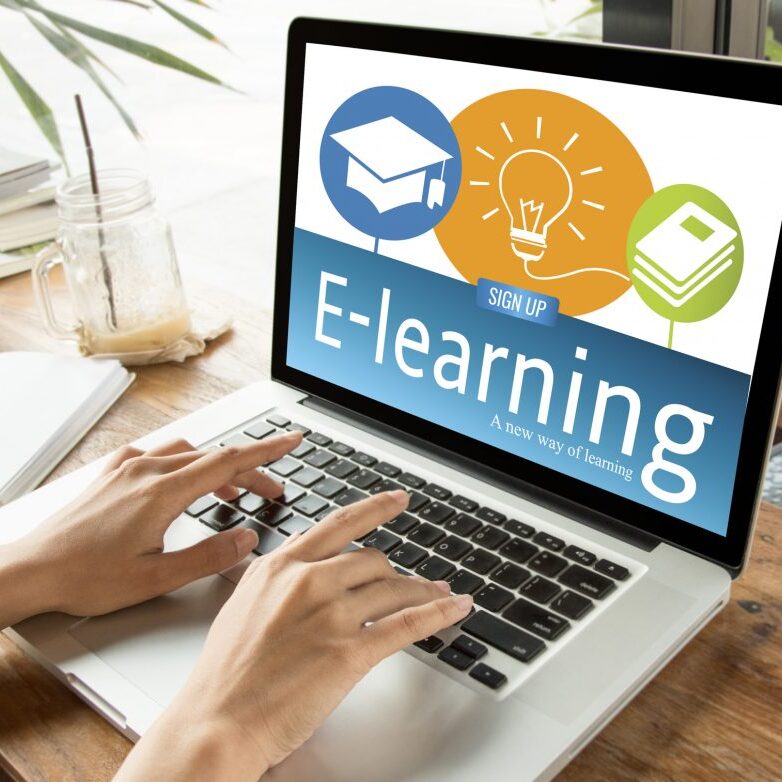
Effective student-clinical educator relationships are essential for the education of audiology and speech-language pathology students. Through high-quality and dynamic readings, multimedia offerings and reflective activities, participants will gain a richer understanding of the relationship dynamics between clinical educators and their students in graduate programs, with specific emphasis on fostering relationship skills as they pertain to clinical education.
Module 1: Communication as a Foundational Framework for Effective Relationships
In this module, you will examine effective communication as the foundation for successful student-‐clinical educator relationships. You will learn strategies to improve your listening skills and examine the powerful role of language in effectively communicating a message. You will then apply what you have learned in focused activities and record your thoughts in your Participant Workbook. You will then check your understanding of key points from this module in a short quiz.
Learning Objectives
- Describe the components of communication and their impact on relationships.
- Evaluate their listening skills and strategize ways to improve them.
- Explain the role that words and language play in communication and relationships.
- Analyze language for communication roadblocks and defensive triggers.
Disclosures
Nancy Alarcon
Financial
Received compensation from CAPCSD as an independent contractor.
Non-Financial
None
Marilyn Dunham Wark
Financial
Received compensation from CAPCSD
as an independent contractor. Receives a salary from the University of Memphis.
Non-Financial
None.
ASHA CEUs

Module 2: Learning and Teaching Styles in the Clinical Education Environment
This module will introduce you to various theories regarding adult learning and learning styles. You will also consider these theories in relation to your own preferences in terms of teaching styles. In the activities, you will have the opportunity to complete a self-assessment to determine your preferences and draft your own personal philosophy of teaching statement.
Learning Objectives
- Describe learning theory and how adults acquire new skills.
- Give examples of personal preferences for problem-solving, decision-making, and approach to the work environment.
- Work with student clinicians to write appropriate goals and objectives for their time together
- Articulate their particular teaching philosophy with regard to their role as a clinical instructor.
Disclosures
Nancy Alarcon
Financial
Received compensation from CAPCSD as an independent contractor.
Non-Financial
None
Marilyn Dunham Wark
Financial
Received compensation from CAPCSD
as an independent contractor. Receives a salary from the University of Memphis.
Non-Financial
None.
ASHA CEUs

Module 3: Through the Looking Glass: How Personal Perspectives Influence Relationships
This module will explore several factors that could affect a student-educator relationship, including cultural, generational, and gender differences. You will explore the notion of perspective as the lens through which you relate to others and analyze your own perspectives. You will also learn about “unconscious bias” and how to prevent your biases from interfering with good decision-making. In the activities, you will use several interactive tools to explore these concepts more deeply and continue to add to your Participant Workbook.
Learning Objectives
- Describe many of the potential factors that may directly or indirectly affect
the relationship between a clinical educator and student including both personal and cultural differences. - Identify implicit or unconscious biases that shape one’s actions.
- Explain how our personal perspectives affect how we understand and react to our relationships with others.
Disclosures
Nancy Alarcon
Financial
Received compensation from CAPCSD as an independent contractor.
Non-Financial
None
Marilyn Dunham Wark
Financial
Received compensation from CAPCSD
as an independent contractor. Receives a salary from the University of Memphis.
Non-Financial
None.
ASHA CEUs

Module 4: Creating a Healthy Clinical Learning Environment
This module focuses on the emotional aspects of clinical education. Clinical care requires a great deal of emotional investment. Clinical students must also contend with the emotional aspects of trying to prove themselves in a new profession. The resources and activities in this module will help you learn strategies for attending to the emotional needs of your clinical students in a productive and mutually beneficial manner.
Learning Objectives
- Articulate strategies for recognizing emotional distress in students and addressing them.
- Explain the difference between excellence and perfection and the emotional toll of perfectionism.
- Demonstrate their “emotional vocabulary”.
- Describe the importance of reflective writing in the clinical education process.
Disclosures
Nancy Alarcon
Financial
Received compensation from CAPCSD as an independent contractor.
Non-Financial
None
Marilyn Dunham Wark
Financial
Received compensation from CAPCSD
as an independent contractor. Receives a salary from the University of Memphis.
Non-Financial
None.
ASHA CEUs

Module 5: Maintaining Positive Relationships
This culminating module explores conflict in supervisory relationships and offers concrete strategies for turning conflict into a productive tool for professional growth. You will also find strategies for providing feedback in a positive and constructive manner that supports the continued growth of your supervisees. In the activities, you will have an opportunity to reflect on your experience in this course and share with your colleagues your greatest takeaway. You will complete your reflections in your Participant Workbook.
Learning Objectives
- Give examples of strategies for dealing with conflict productively in a supervisory relationship.
- Articulate strategies for approaching difficult conversations with supervisees.
- Apply feedback practices that support student growth and positive supervisory experience.
Disclosures
Nancy Alarcon
Financial
Received compensation from CAPCSD as an independent contractor.
Non-Financial
None
Marilyn Dunham Wark
Financial
Received compensation from CAPCSD
as an independent contractor. Receives a salary from the University of Memphis.
Non-Financial
None.
ASHA CEUs

